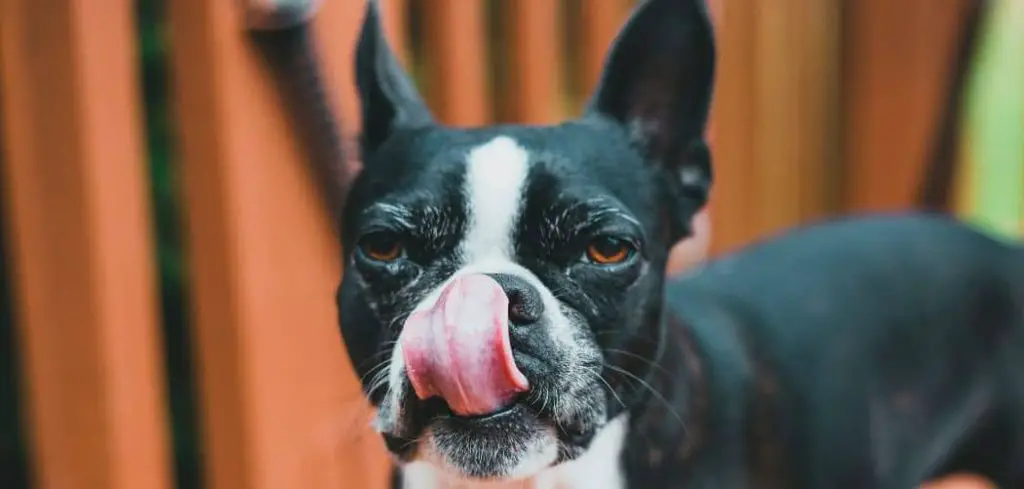A dog’s nose being wet is usually considered normal, but when it seems excessively wet, slimy, or constantly dripping, it can cause concern for dog owners.
While some moisture is healthy and helps dogs smell better, too much wetness could point to allergies or underlying health problems.
We outline the common reasons why a dog’s nose may be excessively wet, what you can do at home, and when to seek veterinary help.
Dog's Nose Being Excessively Wet — Why It Happens
A dog’s nose is naturally moist, but if it seems excessively wet, it may be due to several reasons. Common causes include normal saliva transfer from frequent licking, excitement or stress, allergies, or environmental factors like humidity.
Sometimes, an overly wet nose can point to respiratory infections, nasal irritation, or underlying health issues that cause excess mucus production.

Dog’s Nose Being Excessively Wet: Common Causes
Allergies
Allergies are one of the most common reasons a dog’s nose may be overly wet. Pollen, dust, mold, or even certain foods can trigger an allergic response.
This often leads to watery nasal discharge, sneezing, or pawing at the face. You may notice that the wetness gets worse during certain seasons or after being outdoors.
While mild allergies might not be dangerous, chronic nasal discharge can affect a dog’s comfort and may require veterinary guidance.
Read more: Dog Excessively Licking Nose (Why it happens and what to do)
Upper Respiratory Infections
Just like humans, dogs can catch colds or develop respiratory infections. These often cause a runny or excessively wet nose.
Infections may be viral, bacterial, or even fungal, depending on exposure. Signs often include coughing, sneezing, lethargy, and sometimes a fever.
A persistently wet nose combined with other symptoms should not be ignored, as untreated infections can worsen.
Environmental Irritants
Household irritants like cleaning products, smoke, strong perfumes, or poor air quality can irritate a dog’s nasal passages.
This irritation may cause watery nasal discharge, leaving the nose feeling excessively wet.
Dogs living in homes with smokers or heavy use of cleaning chemicals may be especially prone to this. Unlike allergies, these cases usually improve once the irritant is removed.
Read more: Dog Excessively Itching (Why it happens and what to do)
Dental Problems
It may surprise owners, but dental disease can sometimes cause nasal symptoms. Infections in the upper teeth can extend into the nasal passages, leading to unusual discharge.
This can cause one side of the nose to seem wetter than the other. Bad breath, difficulty chewing, or pawing at the mouth may also be present, pointing to an oral health issue.
Foreign Objects
Curious dogs often sniff grass, dirt, or small objects, and sometimes something gets lodged in the nasal passage.
This can cause constant nasal discharge or a very wet nose. Often, the discharge is watery at first but may become bloody or mucousy if irritation continues.
Dogs may paw at their face, sneeze excessively, or appear restless if something is stuck.
Underlying Health Conditions
In some cases, an excessively wet nose may be a symptom of a larger health condition such as nasal tumors, immune system issues, or other chronic diseases.
Though less common, these situations can be serious.
Persistent or unexplained nasal wetness should always be discussed with a veterinarian, especially if it is accompanied by weight loss, lethargy, or changes in behavior.
What to Do If Your Dog’s Nose Is Excessively Wet
If your dog’s nose seems wetter than usual but your pet is otherwise acting normally, you can take a few steps at home.
First, observe when the wetness is most noticeable — does it worsen after outdoor play, during mealtime, or at certain times of day? Keeping track of these patterns can help your veterinarian.
Make sure your dog’s environment is free from irritants like smoke or strong cleaners. A humidifier can sometimes help if dry indoor air is causing nasal irritation.
Wiping your dog’s nose gently with a soft cloth can keep them more comfortable if the discharge is bothersome.
Always monitor for additional symptoms like coughing, sneezing, or loss of appetite, as these may point to something more serious.
If you suspect allergies, try limiting exposure to common triggers like pollen by wiping your dog’s face after walks.
Switching to a hypoallergenic food may also help if food allergies are suspected, but changes should be made gradually and with veterinary guidance.
When to Call or Visit Your Vet
While a slightly wet nose is usually nothing to worry about, you should contact your veterinarian if the wetness is excessive, persistent, or accompanied by other warning signs.
Thick, yellow, or green nasal discharge often suggests infection and requires prompt treatment. If the discharge is bloody, this may signal a foreign body, trauma, or more serious underlying illness.
Other red flags include constant sneezing, coughing, labored breathing, lethargy, fever, or loss of appetite. If your dog seems uncomfortable, restless, or unable to breathe normally, seek veterinary help immediately.
Early evaluation can rule out more serious conditions and help your dog feel better sooner.
Read more: Dog Excessively Locking (When to worry)
Key Takeaway
A dog’s nose being excessively wet is not always a sign of illness, but it can sometimes indicate allergies, infections, or other health concerns.
Paying attention to additional symptoms and keeping track of patterns can provide valuable information. At-home care may ease mild cases, but persistent or unusual discharge always deserves veterinary attention.
With prompt care and monitoring, most causes of a wet nose can be identified and managed effectively, keeping your dog happy and comfortable.
